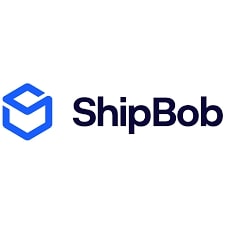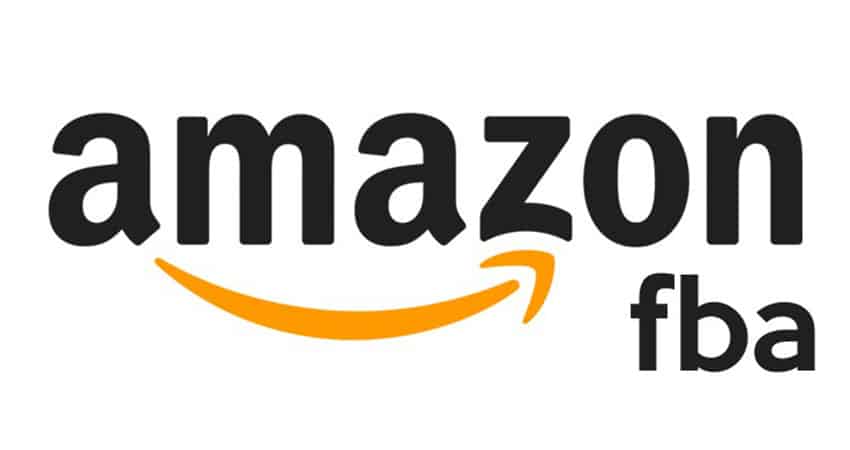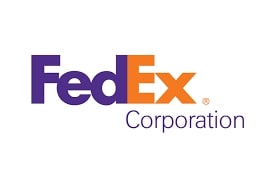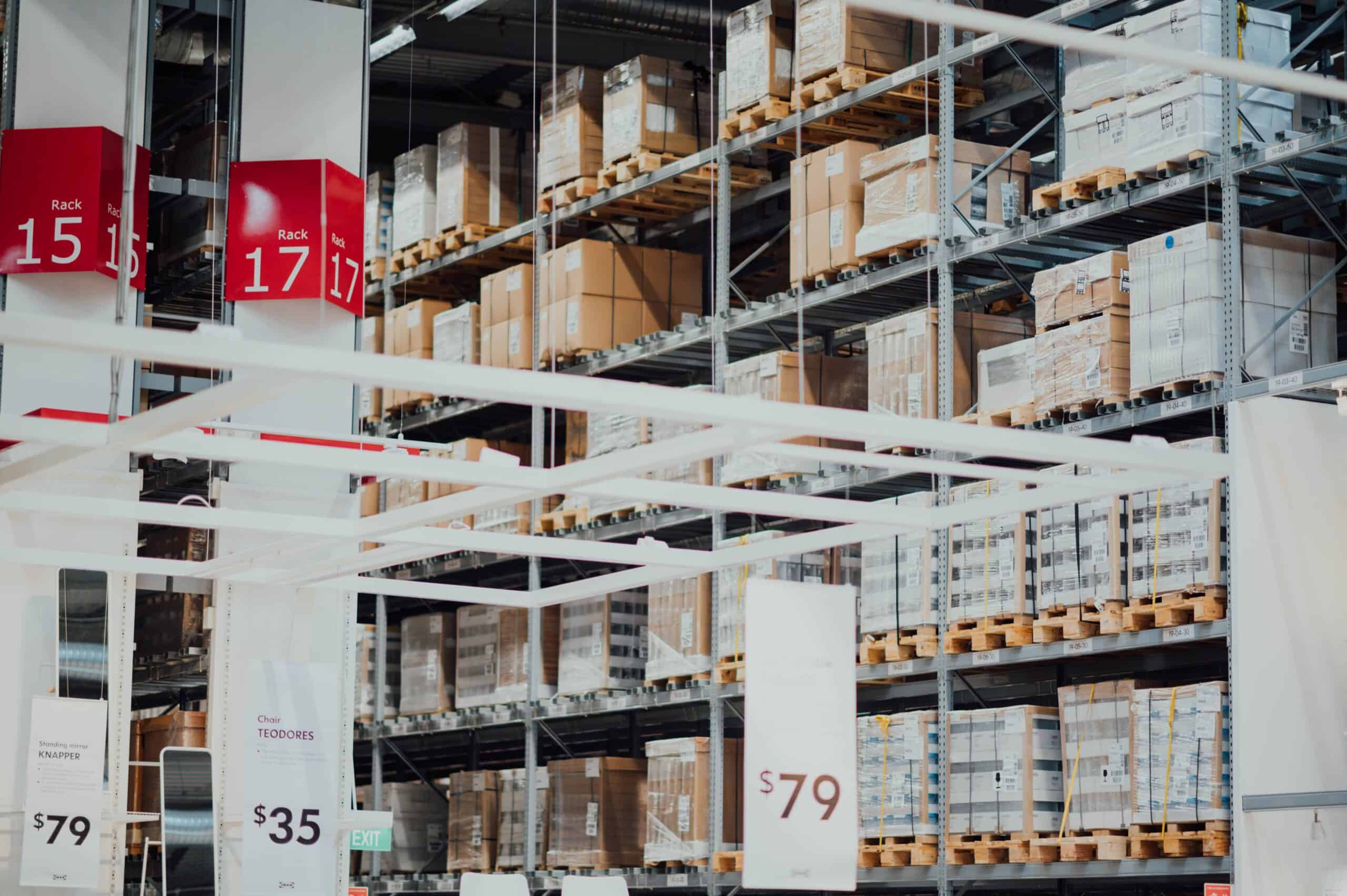Many startups begin with a DIY method to begin fulfillment, others choose to utilize fulfillment services. There’s not necessarily a right or wrong strategy.
However, when you utilize a third party for your fulfillment you’ll want to ensure that you’re working with a company that can help startups flourish. Many fulfillment services focus on larger-scale operations, which is likely not the right fit for your new business.
Instead, consider these top five options for the best fulfillment services for startups.
Quicklook: Best Fulfillment Services for Startups
- Best For Oversized E-Commerce: uShip
- Best For Health, Beauty, or Consumables: ShipBob
- Best For Amazon Sellers: Amazon FBA
- Best For Customer Service: ShipMonk
- Best For Brand Reputation: FedEx Full
5 Best Fulfillment Services for Startups Options
Ecommerce startups have a critical need for the right fulfillment service to get their operations running smoothly. Outsourcing your fulfillment can provide a fast, reliable delivery to your customers which can help you scale. See below for our top choice that has the resources you need for your eCommerce business.
uShip

Best For: Oversized eCommerce
uShip is a logistics company that expanded in 2018 to include delivery services for eCommerce merchants. This allows eCommerce businesses to compete with Walmart, Amazon, and other big boxes online stores in the rapidly growing online retail market. They make it quick and easy to sell everything from furniture to vehicles with a freight option that is transparent and straightforward.
US Warehouse Locations: N/A
Shipping Options: Matches each startup with trusted transportation providers in their open marketplace
Special Features:
- Secure way to pay drivers
- Perfect for large e-commerce products such as furniture, cars, and more
Benefits:
- Services all 50 states and overseas shipping options
- Independent carriers bid against each other t gain your business
- Established reputation in the industry
- High customer ratings and competitive pricing
Disadvantages:
- No warehouse services
- Does not verify insurance coverage of shippers

ShipBob
Best For: Health, Beauty, or Consumables
A little over a decade ago, ShipBob was also a startup with only $5,000 to its name. The company rapidly scaled and became a $10 million business within a little over five years. The company continues to expand, too!
The reason? They are an ideal choice for small eCommerce businesses. They’ve created a 3PL that allows businesses to have their orders reach their clients in a straightforward, simplified process.
As the only fulfillment provider on the list that is FDA-certified climate control and handling, ShipBob is a fantastic option for eCommerce businesses that sell health, beauty, or consumables.
US Warehouse Locations: 23
Shipping Options:
- UPS
- USPS
- FedEx
- DHL
- OSM
- USD
- LSO
- OnTrac
- CDL Last Mile
Special Features:
- FDA-certified climate control and handling
- Robust online platform
Benefits:
- Fast delivery
- Superior customer service
- Numerous location options to help your business expand
Disadvantages:
- Higher storage fees
- Not ideal for oversized goods
Amazon FBA

Best For: Amazon Sellers
Amazon FBA is a fulfillment service that offers their solutions to Amazon sellers. They handle all the storage, picking and packing, shipping, and even returns for eCommerce businesses.
This helps to create a seamless process for both sellers and their clients. With Amazon FBA, your products and merchandise can be sent to fulfillment centers around the United States, making it easy to get into the hands of buyers.
US Warehouse Locations: 1,137
Shipping Options:
- UPS
- USPS
- Amazon Flex
Special Features:
- Amazon Prime Audience
- Amazon Branding
Benefits:
- Amazon FBA has 24/7 customer support on behalf of sellers
- Subsidized shipping fees
- Multi-channel fulfillment
Disadvantages:
- Higher rate of returns due to the ease of returning through Amazon
- Higher fees
- If you’re selling the same product as another Amazon seller, they sometimes mix the inventory together which can lead to fraud
ShipMonk

Best For: Customer Service
ShipMonk was created to help small businesses have the tools they need to scale quickly. They offer high-tech tools and have automated warehouse services.
Plus, to top it all off, they offer each client a dedicated client support representative. With a pricing model that is scalable, you can see volume discounts that will be applied as your eCommerce business grows.
US Warehouse Locations: 3
Shipping Options:
- UPS
- USPS
- FedEx
- DHL
- DHL Express
- Passport
Special Features:
- Dedicated customer service representative
- 60+ turnkey integrations including Amazon, Shopify, and WooCommerce
Benefits:
- Advanced tools for accuracy and warehouse automation
- Pre-build marketplace integrations
- Online billing portal
Disadvantages:
- No climate control
- Only three US warehouses
FedEx Full

Best For: Brand Reputation
If your startup eCommerce business is looking to expand rapidly, FedEx Full has everything you need to grow with you and for you. Their top-of-the-line customer service is here to guide business owners throughout the entire process.
They also help to ensure that you have all of the pertinent details that you need regarding how every piece of your operation is managed. From start to finish, you’ll have a clear picture and understanding of the fulfillment services they provide.
US Warehouse Locations: 220
Shipping Options: FedEx
Special Features:
- Custom FedEx software to classify and cluster orders and products
- Large network
Benefits:
- Top-of-the-line customer service
- Transparent pricing information
- Helps small businesses scale quickly
Disadvantages:
- 4-month onboarding process
- Cannot fulfill Amazon orders
What Is a Fulfillment Service for Startups?
A fulfillment service for startups is a third party that you can turn to. They’ll prepare and ship your orders for you, taking the hassle out of the eCommerce process. It is a great service if you’ve grown beyond your own warehousing capabilities or if you are not interested in dealing with the shipping process.
How Does a Fulfillment Service for Startups Work?
A fulfillment center works to fulfill your orders. After you’ve explored your options, consider locations that are close to your customers.
Once you’ve selected the right fulfillment service for your startup, you’ll send the provider your inventory to store in their location. As orders come in, the fulfillment service will pull, pack, and ship your products to your clients on your behalf.
How To Choose a Fulfillment Service for Your Startup
There are many factors to consider when choosing the best fulfillment service for your startup. Consider the following when you’re searching for the best option for your business.
Product Specialization
There are some fulfillment centers that are specialized for certain products. For example, if you ship large furniture, you might look for a fulfillment center that handles large shipments.
Alternatively, you might need to work with a fulfillment center that provides climate-controlled facilities for makeup or other consumable items. Be sure to explore what specialties your fulfillment center works with to ensure it fits the criteria for shipping your products.
Shipping Warehouses
No longer are the days when customers would wait for a week or more for the products they ordered to be delivered. Now, customers expect rapid shipping speeds.
To stay competitive with the demand, consider working with a fulfillment service that has multiple warehouses throughout the country to get your products to your clients in as little time as possible.
Return Services
It’s inevitable that some of your products may be returned. In fact, about 30% of online orders are returned!
Having a fulfillment service that helps you through the return process will be paramount for your business. They’ll mitigate control returns, work with you on the management of returns, and help reduce returns through improved logistics.
Marketing Tools
As a startup, the more marketing you do the greater the opportunity to expand. Working with a fulfillment company that provides access to marketing tools might be a valuable service to add.
All-Inclusive Pricing
Understanding the pricing structure of your fulfillment services is important. After all, there shouldn’t be surprise fees that keep popping up.
An all-inclusive pricing structure can help you save money. The fulfillment center should not be costing you more than it’s worth. So, be on the lookout for hidden fees and other outdated 3PL models!
Compatibility
Consider how you want your fulfillment company to interact with you. Are you looking for additional support, help with future customer service, or other functionality?
Or if you prefer to be in the lead and have a fulfillment company that’s more hands-off, consider the type of eCommerce platforms that you might utilize and which best fits your ideal business model.
Cost
Last but most certainly not least is the cost. The cost should be taken into consideration for any vendor that you’re looking to work with and your fulfillment service is no exception.
Make sure you understand all the costs associated with the service and verify that it is within your budget. After all, as a startup the bottom line is highly dependent on staying within budget and your fulfillment service should help, not hinder your company.
Work with the Best Fulfillment Service
When you need to work with a fulfillment service, there’s a vast amount to choose from. Be sure to understand what you are looking for with your business model and how the service can impact you. Does the added capacity for shipping make sense with the cost?
Does the company have the ability to rapidly get your products to your clients? Do they have customer service to answer any questions that arise? All these questions should be answered when looking for the best fulfillment service for your startup.
FAQ
Choosing a fulfillment service requires a comprehensive evaluation of your business needs, including the volume of orders, geographical reach, storage needs, and budget. Additionally, you should consider the provider’s reliability, technology, scalability, and customer service reputation before making a decision.
Different approaches to order fulfillment include self-fulfillment, where businesses manage their own inventory and shipping, third-party logistics (3PL) services, which handle storage and delivery for businesses, and drop shipping, where the seller doesn’t hold inventory but instead forwards orders to a manufacturer or wholesaler for fulfillment.
Fulfillment cost is calculated by adding the expenses associated with warehousing (like storage and utilities), labor (such as picking and packing), shipping fees, and any additional charges like packaging materials or returns processing. It’s essential to factor in all these costs to get a comprehensive understanding of your total fulfillment expenditure.

